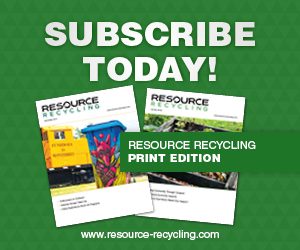Health authorities say reusable packaging poses no more risk of spreading coronavirus than single-use packaging, but the plastics industry is still trying to use COVID-19 to derail progress on reducing single-use plastics.
Taking aim at single-use plastics
June 12, 2020 will mark a year since the European Parliament and the European Council adopted the Single-Use Plastics Directive (SUPD), a landmark piece of legislation, representing an important first step toward curbing plastic pollution and moving toward a circular economy.
In order to comply with the SUPD, countries that are members of the European Union have two years to transpose the directive into national laws, regulations and administrative provisions. Some countries, like France, have already taken first steps toward banning single-use products and encouraging a greater shift to reuse. As of Jan. 1, 2020, the country has banned plastic plates, cups, and cotton buds, and more items will be banned next year. Other countries, like Sweden, are aiming to go a step further than the SUPD’s requirements and restrict other products.

Clarissa Morawski
Moving away from single-use plastics and toward reusable alternatives is a clear objective of this directive and of European policymakers. In the “EU Strategy for Plastics in a Circular Economy,” the European Commission asserts that “all plastics packaging placed on the EU market should be designed to be either reusable or recyclable.” Furthermore, Article 5 of the revised Packaging and Packaging Waste Directive (PPWD) obliges EU member countries to take measures to increase the share of reusable packaging placed on the market, as well as systems to reuse packaging. Such measures may include “setting up of a minimum percentage of reusable packaging placed on the market every year for each packaging stream.”
Reuse and COVID-19
Across the world, the novel coronavirus outbreak has led many states, cities and stores to suddenly delay and/or reverse bans and fees on single-use items. In the U.S., single-use bag bans have been lifted in California, Massachusetts, Connecticut, and Oregon, and have been delayed in others like Maine and New York. Some jurisdictions (New Hampshire, Massachusetts and Illinois) have banned reusable bags altogether, out of fears that they could carry the virus between homes and grocery stores. Where reusable bag bans are not in place, many stores are asking customers who bring their own bags to pack their own groceries at checkout.
In Europe, the group European Plastics Converters (EuPC) has called on the Commission to “lift all bans on some of the single-use plastic items” and to postpone the deadlines in the SUPD “for at least another year.” However, the Commission wisely rejected this call, affirming that “good hygiene practices should be applied to all products, including substitutes of banned SUPs,” and there should not be any delay on the implementation of the SUPD.
While it’s not clear how long the pandemic could go on for, what is clear is that the plastics industry is using this unprecedented health crisis and climate of fear as an opportunity to link reusable packaging to the spread of infection, while arguing that single-use plastics are necessary to protect the health and safety of both front-line workers and the general public.
This ongoing attempt by industry to delay and weaken environmental policies is not based on science, and there is no evidence that single-use packaging contributes to the spread of COVID-19 any less (or more) than their reusable counterpart.

Samantha Millette
COVID-19 is known to transmit from person to person, primarily through the droplets that are generated when an infected person sneezes, coughs or exhales. Although studies have shown that the virus can persist on surfaces from a few hours to up to several days, the World Health Organization (WHO)’s interim guidance for food businesses states that it is “highly unlikely” that the infection is transmitted through food or food packaging. The U.S. Food & Drug Administration (FDA) has also affirmed that “there is no evidence of food or food packaging being associated with the transmission of COVID-19.” This is true for both single-use and reusable packaging.
Whether it is used only once or 100 times, any container or bag, under the right conditions, could be a potential vector. Just like our dinnerware, countertops and clothing, all packaging is made from materials and the best way for consumers to protect themselves is by adhering to the guidance of public health authorities regarding good sanitation practices, including regular hand-washing.
Well-established reuse systems are clean and safe
It’s important to understand, particularly in the context of this crisis, that not all reuse and refill systems are created equal. Those with well-established washing and cleaning processes in accordance with the rules by the health and safety authorities (e.g, glass and PET refillable bottles industry) have and continue to ensure a high level of health and safety. A good case study of this is sanitized reusable systems, like Oregon’s refillable glass bottle program, where glass bottles are washed, sanitized and refilled up to 25 times. These types of reuse and refill systems have been running through many years all over the world, ensuring safety and eliminating unnecessary single-use items.
Benefits of reuse
Reusable packaging is a critical part of the solution for achieving a circular economy. By keeping material in the production cycle for as long as possible, it conserves resources and reduces plastic pollution, including all of the environmental impacts associated with the material’s production and end-of-life management.
Aside from the environmental benefits, reuse and refill systems offer tremendous economic benefits in terms of material cost savings and job creation, which are multiplied with each reuse cycle. Reuse also goes hand in hand with extended producer responsibility (EPR), which creates an incentive for producers to rethink product design so as to reduce life cycle impacts and minimize their costs.
Final thoughts
While it’s true that our collective knowledge of the virus is evolving rapidly and many uncertainties remain, decisions around worker and public health and safety should be based on the best available science, as opposed to arguments by an industry with economic interests at stake.
While the primary concern for all of us during these times is the health and safety of our communities, COVID-19 should not become an excuse to pollute or roll back environmental policies. We cannot allow industry to take advantage of current circumstances to bring us back to a world full of single-use items for their own financial gain. Now more than ever, a strong focus should remain on continuing to introduce policies that promote reuse and to remove economic, administrative and tax barriers to reuse versus single-use at a national and local level.
Clarissa Morawski is based in Barcelona and serves as the CEO of the Reloop Platform, which brings together industry, government, and nongovernmental organizations to form a network for advances in policy that accelerate the global transition to a circular economy for all resources. She is also principal of Canada-based CM Consulting Inc. She can be contacted at [email protected].
Samantha Millette is an environmental consultant specializing in the areas of waste management research, policy, and planning. She is the owner of Millette Environmental and can be contacted at [email protected].
The views and opinions expressed are those of the author and do not imply endorsement by Resource Recycling, Inc. If you have a subject you wish to cover in an op-ed, please send a short proposal to [email protected] for consideration.
A version of this story appeared in Plastics Recycling Update on June 24.



